You might be familiar with this dog’s nickname, the American Gentleman, which is a perfect way to describe the temperament of this breed. The Boston Terrier is a small, playful, and friendly dog. Many first-time pet owners gravitate towards their even-tempered attitude but find themselves wondering whether they should buy a male or female.
Both male and female Boston Terriers are intelligent and empathetic animals. Still, there are differences between sexes, even if only minor. These small characteristics could impact your experience raising a new pet.
 Visual Differences
Visual Differences

At a Glance
- Average height (adult): 15–17 inches
- Average weight (adult): 10–25 pounds
- Average price: $1,500–$2,000
- Lifespan: 13–15 years
- Overall build: Bulky with more muscle mass
- Average height (adult): 9–15 inches
- Average weight (adult): 9–20 pounds
- Average price: $1,200–$1,800
- Lifespan: 13–15 years
- Overall build: Lean with less muscle mass
Boston Terriers 101
It’s hard not to love Boston Terriers after you spend time with their loving and affectionate personalities. Distinguishing the differences between males and females is a bit easier when comparing physical as opposed to personalities. Males tend to be taller and weigh more, while females are typically lean with less muscle mass. If you want to really start picking out the minor details, take a closer look at each sex.
Male Boston Terrier Overview
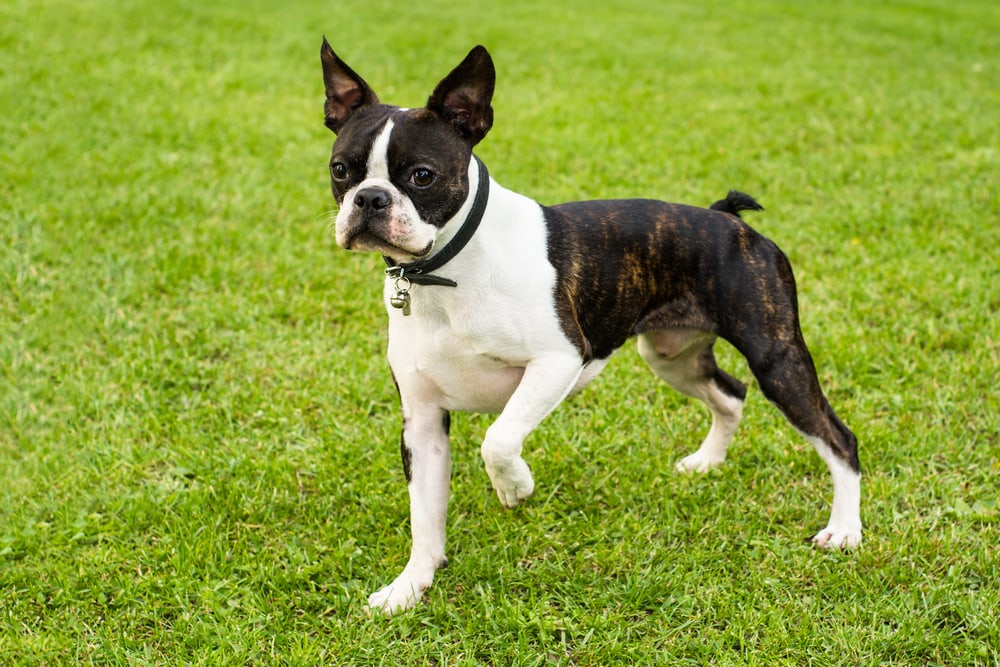
Personality / Character
Male Boston Terriers are energetic and friendly animals. Although they are intelligent, they take a little more time to learn new commands compared to females. Males are more motivated by food and reach their physical maturity quicker as well. Male Boston Terriers love to be babies and get as much attention from you as possible. Some say it’s because they reach mental maturity later than the ladies. Expect your male to be somewhat clingy but also friendly to strangers. However, they will also be more aggressive when necessary.
Training
Most dog owners have great success when training their Boston Terriers. They are naturally curious and very smart. Still, the males have a more challenging time focusing and might be less enthusiastic about their training. When training males, make sure to give them lots of praise and affirmations.
Health & Care
Boston Terriers have a flat face that contributes to some of their most common health issues. Both males and females suffer from respiratory problems. Because the men are more active and playful, they are more prone to bone and hip injuries as they age. Common injuries in males include herniated discs, patellar luxation, and hip dysplasia.
- Affectionate
- Non-aggressive
- Friendly
- Good family dog
- More likely to react if provoked
- Lower attention span
Female Boston Terrier Overview
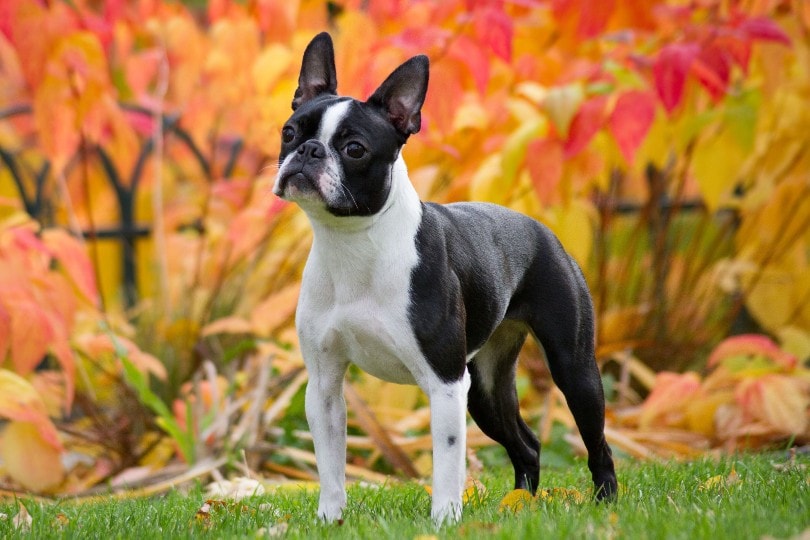
Personality / Character
A lot of people assume that the female sex is always the more affectionate one but this is rarely true. Female Boston Terriers are friendly and amusing like the males but with a smaller desire to please her owner. Even though she is more independent, she is also better at catching on to training commands. Female Boston Terriers are less playful and a better match for those who respect small doses of alone time. The females are also more cautious around children and less aggressive towards all living creatures overall.
Training
Females take their training more seriously than their male counterparts. They are much faster at adapting and learning new things because they mature so much faster. Females are focused and reserved. They aren’t as concerned with pleasing you as the men, though they do still enjoy it.
Health & Care
Female Boston Terriers have small pelvises and broad heads that contribute to some of their most common health issues. C-section is often the required form of delivery to ensure the health of the mother and her puppies. This also makes breeding more difficult. Aside from these, she is prone to the same respiratory diseases as male Boston Terriers.
- Patient
- Good family dog
- Trainability
- Independent
- Less affectionate
- Pregnancy problems
Are Male or Female Boston Terriers Better for a Family?
This is a difficult question to answer because both males and females have their own sets of advantages and disadvantages. It’s always important to closely monitor your animals whenever there are children around. This is even more important with young children who can’t be taught how to treat a dog properly yet.
Male Boston Terriers are better suited for more active families. They are more likely to play all day with the children and snuggle up with them at night to protect them. On the other hand, females are more mindful of their surroundings, less hyper, and easier to train. In general, both males and females interact well with children. Some people would argue that this breed might be a little too energetic for infants and toddlers, though.
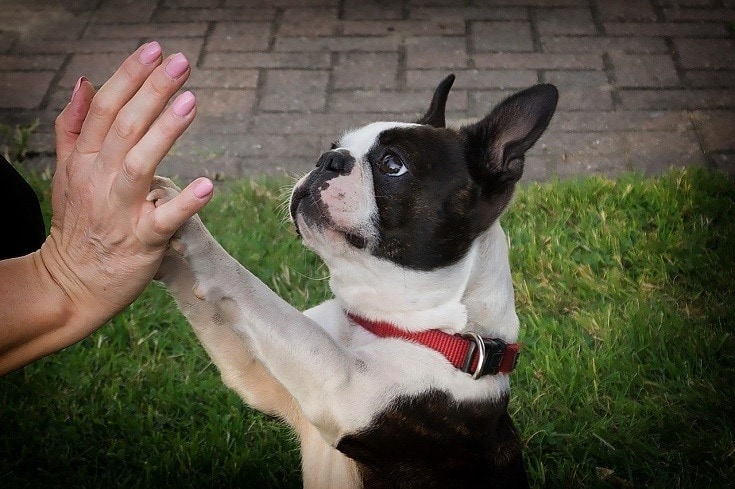
Which Gender Is Right for You?
After comparing the differences between male and female Boston Terriers, you’ve hopefully found a few things that are more appealing with one sex than the other. Take some time to think about how each of their characteristics could mesh with your lifestyle and what you want out of a companion. Just remember that each dog is an individual, and it’s possible that they don’t turn out at all how you expected.
You may also be interested in:
- 7 Best Dog Foods for Boston Terriers – Reviews & Top Picks!
- Boston Terrier Pregnancy: A Week-by-Week Guide & Vet Approved Advice
Featured Image Credit: Aneta Jungerova, Shutterstock (top); Avi’s Colors, Pixabay (bottom)

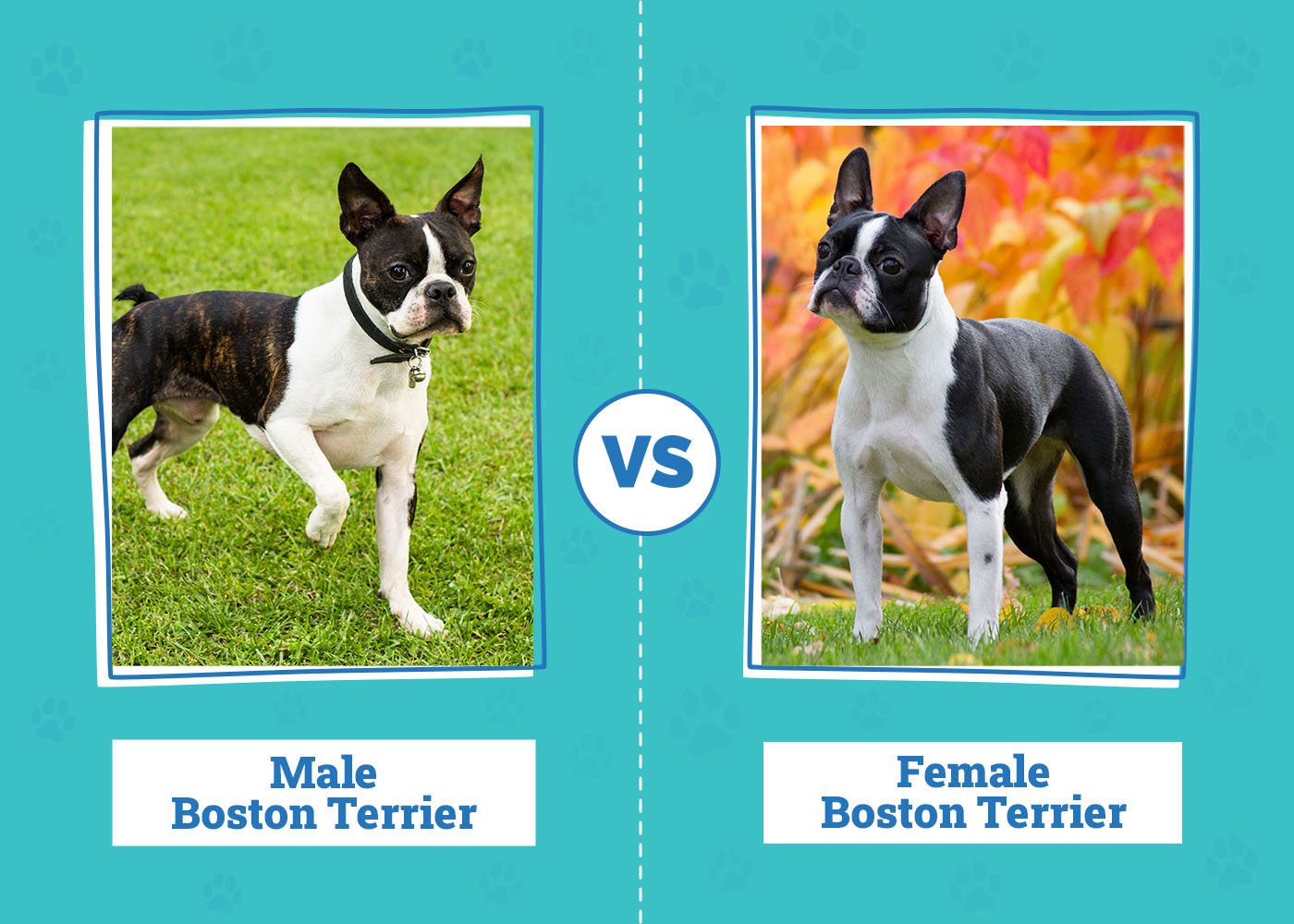
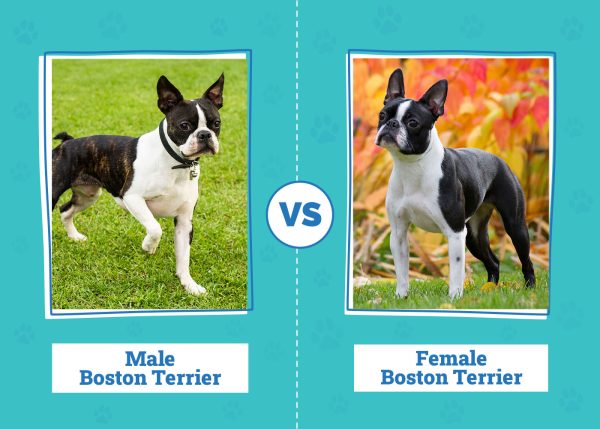
 Visual Differences
Visual Differences







